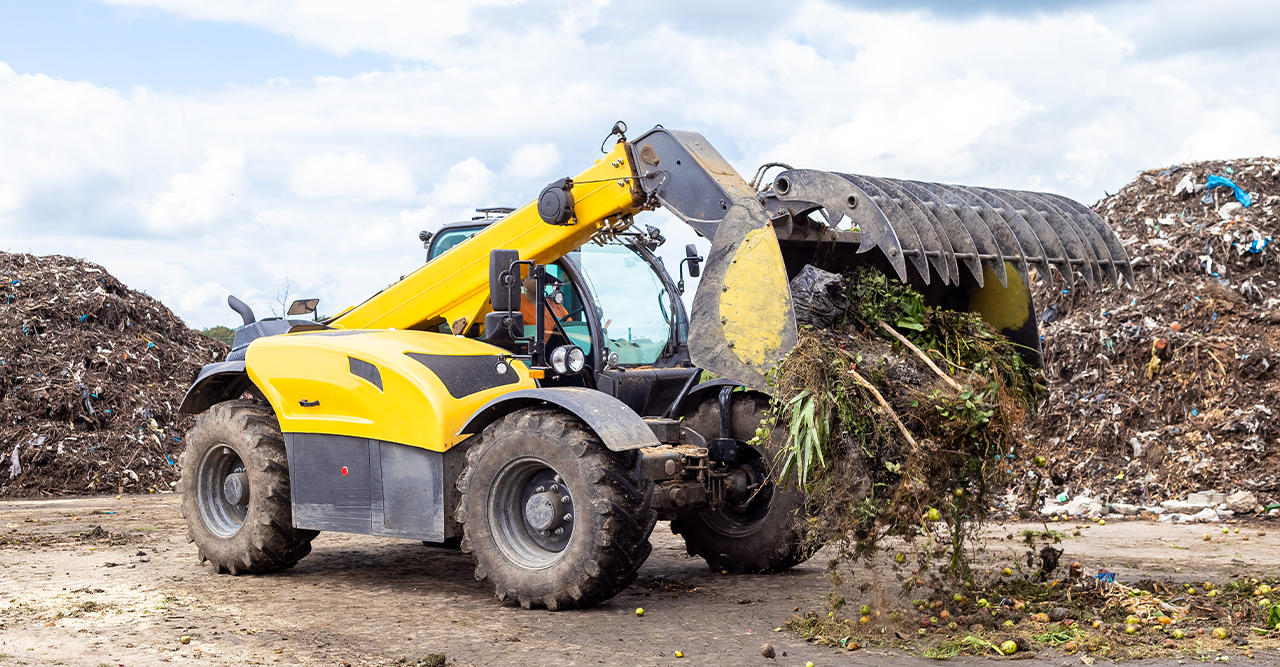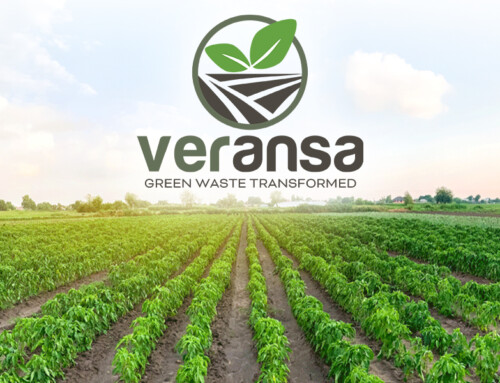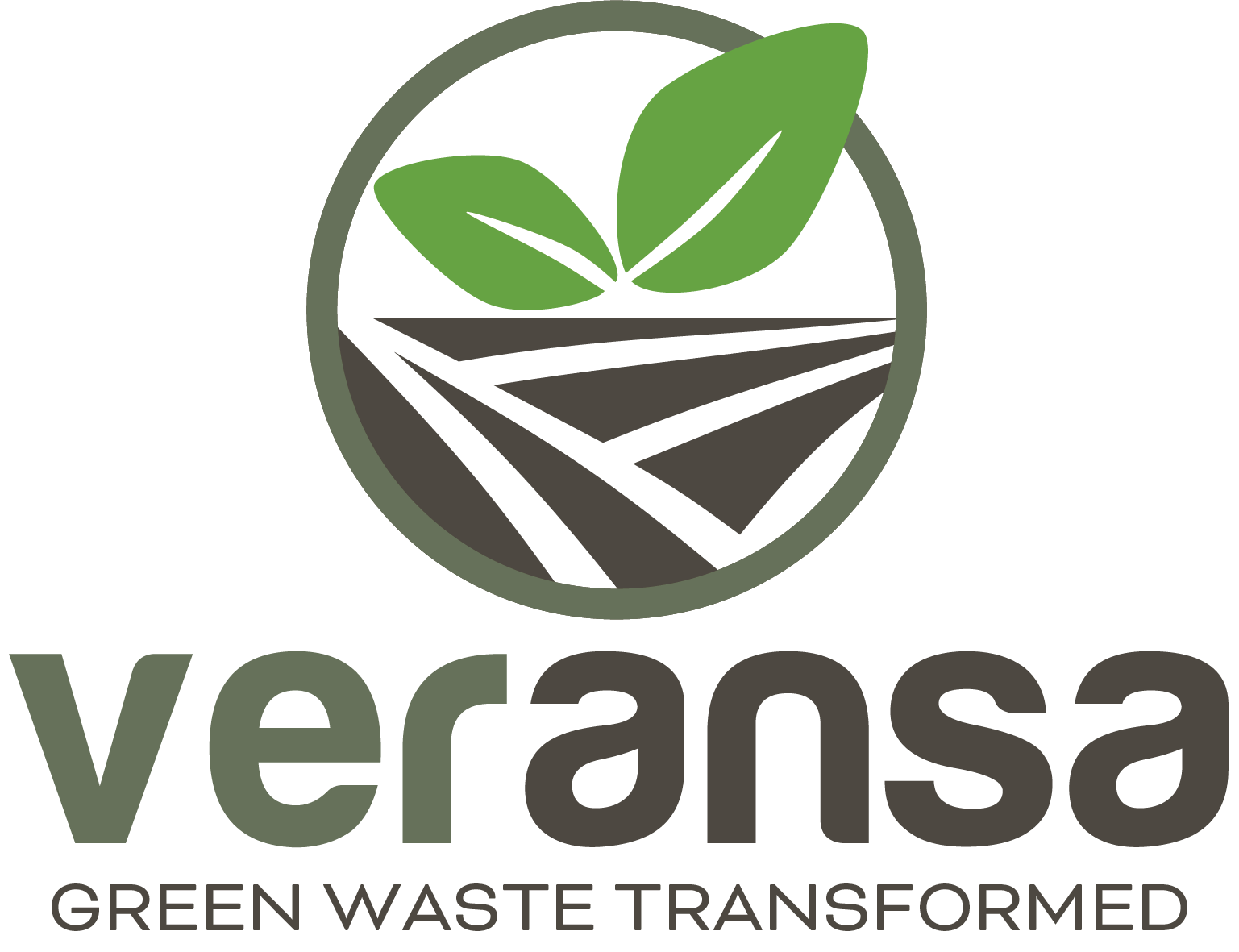The terms “compost” and “soil” are often used interchangeably, but there are differences between the two mediums. In this article, we define compost and soil and discuss the many benefits of using compost in your garden or landscape – as well as highlight the benefits of using wood waste for this purpose.
Compost is defined as medium-density, nutrient-rich soil. It is organically made using oxygen, bacteria, water, and organic materials such as lawn clippings, twigs, dry leaves, or food waste. Over time, the materials deteriorate in a process known as “composting.” The result is a nutrient-rich soil, used most often to rejuvenate soils that are nutrient-deficient. Compost can be spread as mulch, blended with soil to enhance quality, watered down to utilize as a liquid fertilizer known as “compost tea,” or applied directly to an aerated area.
- To use compost as an alternative to traditional mulch, apply just as you would any type of mulch. Apply a two-to-three-inch layer once or twice annually.
- If you need to improve the current soil, mix the compost into the ground to a depth of approximately four inches.
- Compost tea is made from the water soaked in composted materials. The liquid is infused with the inherent nutrients, microorganisms, and humates from those materials that leached into the water. Humates help plants optimize the available nutrients in the soil, so adding compost tea instead of plain water will help elevate the nutrient levels in your soil.
The Significant Benefits of Utilizing Compost
- Boosts nutrients in the soil
- Elevates soil health
- Encourages the growth of beneficial microbes
- Helps the soil to retain moisture
- Promotes proper growth of plants
- Strengthens the soil’s defense against disease
- Assists with weed control
- Directly infuses nutrients into the soil
One of the most significant benefits of composting is that it repurposes organic materials. Instead of filling landfills, all types of organic waste can be returned to nourish the planet by creating rich compost.
The Drawback to Using Compost: When many people hear the term “composting,” they think of collecting food waste from their kitchen in backyard containers. While this type of compost is rich in nutrients and will absolutely benefit your garden or landscape, it can take excessive time or effort to create enough compost to make a difference. Composting can be a very time-consuming process, often requiring months to break down the materials entirely. However, purchasing commercially manufactured compost from wood and yard waste can provide commercial landscapers and residential gardeners with a quality product that helps the environment.
Why Recycle Wood Waste into Compost?
Yard waste should be seen as a natural resource, not as garbage to be thrown away. Composting is nature’s brilliant way of recycling green and wood waste into nutrients that are beneficial for new growth and ever-increasing soil fertility. Wood waste plants replicate this natural process by utilizing state-of-the-art bulk composting methods to manufacture high-quality compost and soil amendments. These products are ideal for farms, golf courses, common areas at commercial properties, and home gardens.
What Can Be Composted?
- Clean yard waste including leaves, plant trimmings, branches, and twigs
- Hardwood, softwood, and other similar wood waste
- Grass & yard clippings
- Bulkier wood waste items such as stumps and wood chips
The Veransa Group partners with municipalities to collect wood and green debris after storms and repurposes this waste into quality mulch, compost, and soil amendments. Whether you are a residential homeowner cleaning up your yard, a commercial landscaper or farmer in need of quality soil amendment, or a municipality looking for a solution for storm debris – Veransa is the sustainable partner you need.





